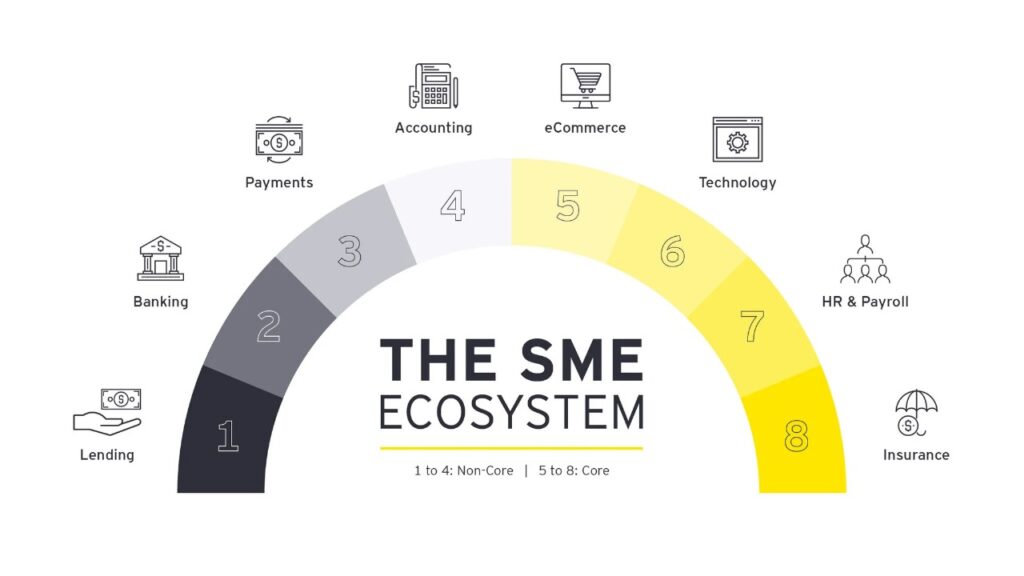Automation is transforming SME banking in Pakistan by streamlining routine processes, enhancing accuracy, and reducing costs. This revolution supports small and medium enterprises (SMEs) in managing their finances more efficiently, freeing them to focus on growth and innovation.
The Basics of Banking Automation: What Is It?
Banking automation involves using technology—software robots, algorithms, and digital platforms—to perform repetitive, rule-based tasks without human intervention. Typical automated processes include payment processing, account reconciliations, loan approvals, compliance checks, and expense management. This reduces manual workload, speeds up transaction cycles, and improves service quality.
Automated Processes in Action: Payments, Reconciliations, Expense Management
- Payments: Automated systems handle bill payments, payroll disbursements, vendor payments, and customer transfers quickly and accurately without human delay or error.
- Reconciliations: Automation compares internal transaction records with bank statements, flagging discrepancies instantly to maintain accurate and timely bookkeeping.
- Expense Management: Automated expense tracking tools categorize expenses, match receipts to transactions, apply corporate policies, and generate reports—cutting errors and speeding approvals.
How Pakistani Banks and Fintechs Are Using Automation
Leading Pakistani banks such as Habib Bank Ltd (HBL), MCB Bank, United Bank Ltd (UBL), and Bank of Punjab are incorporating Robotic Process Automation (RPA) and workflow automation widely:
- Account opening and KYC: Automating customer verification and document processing reduces onboarding times from days to hours.
- Loan processing: Automated credit scoring and document verification facilitate faster loan approvals, expanding SME access to finance.
- Payroll automation: Solutions like JS Bank’s Payroll Business Solutions automate salary calculations, tax deductions, and disbursements, ensuring timely employee payments.
- Fraud detection and compliance: Automated monitoring systems identify suspicious transactions and support regulatory compliance.
- Digital payment processing: Integration with digital wallets accelerates transactions and reconciliations.
Fintech startups also leverage automation to offer instant loans, digital wallets, and payment gateways tailored for SMEs, enabling scalable, low-cost financial services.
Key Benefits: Time Savings, Accuracy, Cost Reduction
- Time Savings: Automation dramatically cuts process times. For instance, payroll automation eliminates manual calculations, saving hours weekly.
- Accuracy: Automated systems reduce human error in calculations, data entry, and compliance adherence, minimizing costly mistakes and penalties.
- Cost Reduction: Lower administrative overhead and fewer manual interventions translate into significant cost savings.
- Enhanced Customer Experience: Faster service delivery and fewer errors build trust and improve SME client satisfaction.
- Scalability: Banks and fintechs can serve more SME customers without linear increases in staff or infrastructure.
Overcoming Common Fears and Resistance
SMEs and banks may hesitate to adopt automation due to fears such as job loss, technical complexity, or data security concerns. These can be overcome by:
- Providing training and support to staff and clients.
- Implementing robust cybersecurity and data privacy protections to safeguard sensitive information.
- Demonstrating ROI through pilot projects that showcase efficiency gains.
- Emphasizing automation as a tool that augments, not replaces, human roles, enabling higher-value activities.
Choosing Automation Tools for Your Business
When selecting automation tools, SMEs should consider:
- Ease of integration: Ensure seamless compatibility with existing accounting, ERP, or banking systems.
- User-friendliness: Solutions should be accessible to users with varying technical skills.
- Scalability: Tools should support business growth without needing constant upgrades.
- Security features: Encryption, access controls, and compliance with Pakistani regulations are essential.
- Vendor support: Reliable customer service and training resources accelerate adoption.
Popular solutions range from payroll automation platforms like JS PayDay to fintech credit scoring and lending APIs used by Bank of Punjab for SME lending initiatives.
The Potential for Future Growth: AI, Machine Learning in Banking
Automation is evolving with AI and machine learning, enabling:
- Predictive analytics: Better risk assessment and personalized financial products for SMEs.
- Intelligent chatbots: 24/7 customer service and self-help portals.
- Fraud prevention: Real-time anomaly detection using behavioral analytics.
- Process optimization: Dynamic workflow adjustments and decision automation.
In Pakistan’s SME banking sector, increased AI adoption will deepen financial inclusion, reduce costs further, and foster innovation for competitive advantage.
By embracing automation, Pakistani SMEs and their banking partners can achieve unprecedented efficiency, accuracy, and scalability—fundamental ingredients for sustained growth in a digital economy.

